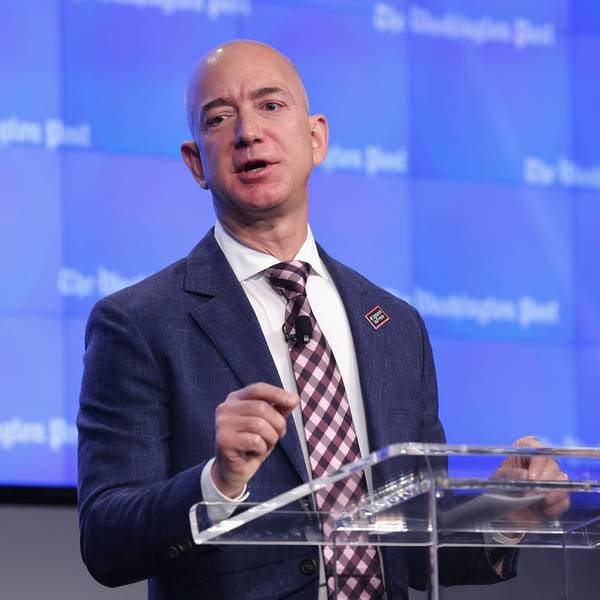The city of Portland, Oregon on Wednesday took a bold step towards addressing the national scourge of extreme pay inequality with the passage of a landmark tax penalty to be imposed on companies whose CEO makes more than 100 times the average worker's salary.
"This is as close as I've ever [come] to a tax on inequality itself," said outgoing commissioner Steve Novick, who proposed the tax, which was approved by the City Council 3-1.
The tax will target publicly-traded companies using "compensation data the federal Securities and Exchange Commission will report," beginning January 2018, according to Oregon Live. Officials expect that as much as $3.5 million could be raised each year, which will go towards the city's homeless services.
According to the Institute for Policy Studies (IPS), "the city has identified more than 500 corporations that do enough business in Portland to be affected by the surtax, including many that regularly dominate the highest-paid CEO lists, such as Oracle, Honeywell, Goldman Sachs, Wells Fargo, and General Electric."
And Novick and other proponents are hopeful that it will inspire other cities to take local steps to tackle the nation's gross inequality epidemic. A report published by the national AFL-CIO union in May found that the average CEO of an S&P 500 company made 335 times more money than the average rank-and-file worker.
Under the plan, "a company with a CEO-to-worker ratio of at least 100-to-1 will pay a surcharge equal to 10 percent of the amount it pays for Portland's business tax," Oregon Live explains. "A company with a 250-to-1 ratio or greater would pay a 25 percent surcharge."
"This path-breaking policy tackles a key driver of our growing inequality," said IPS veteran executive compensation analyst Sarah Anderson. "I predict this will spark a wave of similar actions, much like the local living wage campaigns that have spread like wildfire across the country," she added, referring to the national Fight for $15 minimum wage movement.
"Indeed," Anderson wrote in Nation op-ed on Thursday, "we may look back at the Oregon vote as the dawn of a new 'pay ratio politics.'"
She continued:
Cities and states across the country may soon be scrambling for every extra dime they can find. President-elect Donald Trump's current tax plan would lavish $6.2 trillion in tax breaks on the rich and the corporations they run over the next 10 years, a giveaway that would almost certainly lead to draconian cuts to social safety-net programs and services.
If officials outside the D.C. Beltway want to help lessen that pain, they'll need to find innovative new revenue sources. A tax penalty on extreme pay ratios could top that list.
As Portland Mayor Charlie Hales said after the vote, "It falls to cities to do creative, progressive policymaking, and this is exactly what this is."
"Income inequality is real, it is a national problem and the federal government isn't doing anything about it," Hales told the New York Times in a phone interview. "We have a habit of trying things in Portland; maybe they're not perfect at the first iteration. But local action replicated around the country can start to make a difference."



